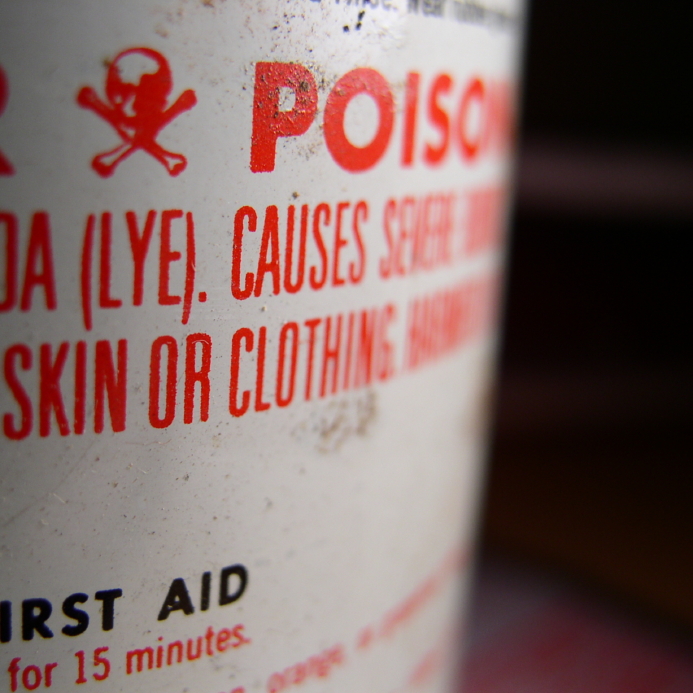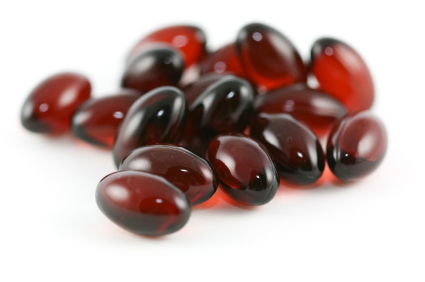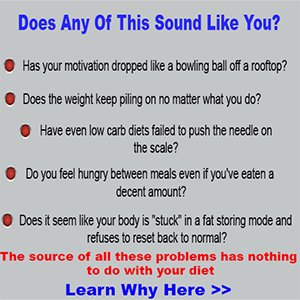How This 87-Year Old Urologist Keeps Prostate Cancer At Bay
 Prostate cancer, next to melanoma, is the second most common cancer that affects men.
Prostate cancer, next to melanoma, is the second most common cancer that affects men.
It is also the leading cause of death among men of all races.
The latest statistics show that in 2007, 223,307 men were diagnosed with prostate cancer.
There were also 29.093 men who died from prostate cancer in 2007.
Current treatment options include removal of the affected prostate, as well as your typical cancer treatment options (chemotherapy and radiation).
There are few studies that address diet and the ratio of omega-3 to omega 6 fatty acid levels.
It has been theorized that by decreasing dietary fat intake and adding omega-3 fatty acids, this could alter the omega-3/6 ratio.
By altering the ratio, this could decrease prostate cancer development and progression.
In fact, a study published in Cancer Preventative Research shows the combination of a low-fat diet in combination with omega-3 fatty acids could reduce prostate cancer development and progression.
But first, let's take a look at some risk factors for prostate cancer...
The 4 Powerful Risk Factors You Need To Be Aware Of
As you know, prostate cancer can be a very serious type of cancer. Once thought of as a age-related disease, we know that any man can be at risk for developing prostate cancer.
In fact, here are some risk factors you should know about that could increase your risk for developing this type of cancer:
1. Age
Although a high population of older men may have prostate cancer, it can attack younger men in their 40s and 50s. And this could make it a much more dangerous type of cancer.
Although very rare in men younger than 40, after 40 the risk increases, with men in their 60s being the most at-risk population.
2. Race/Ethnicity
Although there is no hard proof as to why this occurs, African American men are more at risk for developing prostate cancer than Caucasians or Hispanics.
And to make matters worse, African American men are more likely to develop prostate cancer at a younger age, and the cancer is much more aggressive.
This is why African American men are twice as likely to die from prostate cancer then other races or ethnicities
3. Family History
If you have a father or brother who has been diagnosed with prostate cancer, your risk goes up significantly.
Often called familial prostate cancer, this type of prostate cancers accounts for nearly 20 percent of the prostate cancer diagnoses!
If you have prostate cancer that runs in your family, you are twice as likely to develop this disease due to shared genes.
4. Chemical Exposure
Although not everyone will fall under this category, but a good chunk of prostate cancer cases may be tracked back to chemical exposure at work.
But farmers who use pesticides…those who smelt…and those in rubber or battery manufacturing lines of work could be at a higher risk for developing prostate cancer.
Now that you have a better understanding of what could cause prostate cancer, let's take a look at how you could significantly reduce your risk...
Omega-3 and Prostate Cancer
Researchers wanted to see if omega-3 fatty acids in combination with a low-fat diet could positively alter prostate disease progression.
They recruited 55 patients of which 48 patients completed the study.
They randomly assigned the patients to either a low-fat, omega-3 rich diet (omega-3 to omega-6 ratio of 2 to 1) or a typical western diet (omega-3 to omega-6 ratio of 15 to one) for a period of 4 to 6 weeks prior to surgery.
First, they wanted to see if altering the ratio of omega-3 to omega-6 fatty acids would result in a lower release of IGF-1.
IGF-1 has been shown to aid in the growth and development of the prostate, however, higher levels of IGF-1 has also been shown to stimulate the growth of prostate cancer cells.
Secondly, they wanted to see if a low-fat diet, in combination with omega-3 fatty acids, would reduce markers for cancer cell growth, alter the omega-3 to omega-6 ratio, reduce COX-2 markers, and reduce signs of cell death.
Through their research, they discovered that a low-fat diet, in combination with omega-3 fatty acids, did little to reduce the IGF-1 levels in the blood.
However, they did find that a low-fat, omega-3 rich diet altered the ratio between omega-3 and omega-6 fatty acids.
Plus, they also noted upon extraction of the prostate cells, the combination reduced benign and malignant cancer cell growth in the prostate and also reduced the proliferation of cancer cells.
They concluded, even though the results were positive, that more studies are needed in order to discover the exact mechanism in which omega-3 fatty acids reduce prostate cancer cells.
Omega-3 and Your Health
Omega-3 fatty acids have been shown to reduce key markers for inflammation.
Western diets are typically lower in omega-3 fatty acids and higher in omega-6 fatty acids, which could alter the omega-3 to omega-6 ratio, therefore potentially increasing inflammation.
By altering the omega-3/omega-6 ratio (increase omega-3’s) research shows, could reduce inflammation in your body, potentially leading improving your health.
Now, omega-3 fatty acids, in combination with a low-fat diet, could help improve men’s health, especially the health of the prostate.
Including omega-3 fatty acids has been shown to benefit women by alleviating symptoms associated with PMS and endometriosis. Now in men, omega-3 fatty acids could be a possible new addition to improving the health of the prostate.
This shows yet another reason why omega-3 fatty acids could improve your health and well-being.

BREAKING:
Combine THIS With a Low-Carb Diet For Dramatic Reduction In Your Health Risks
References:
Aronson, W. Kobayashi, N. Barnard,RJ. Henning, S. Huang, M. Jardack, P. Liu, B. Gray, A. Wan, J. Konijheti, R. Freedland, S. Castor, B. Heber, D. Elashoff, D. Said, J. Cohen, P. Galet, C. Phase II Prospective Randomized Trial of a Low-Fat Diet with Fish Oil Supplementation in Men Undergoing Radical Prostatectomy. Cancer Prev Res. 2011. Doi: 10.1158/1940-6207.CAPR-11-0298.
Roberts, CT Jr. IGF-1 and prostate cancer. Novartis Found Symp. 2004. Vol. 262:pp. 193-9.
CDC Prostate Cancer Statistics https://www.cdc.gov/cancer/prostate/statistics/
About Jayson Hunter & Jaylab Pro

Jaylab Pro was founded by Registered Dietitian Jayson Hunter. Jayson has been recognized as one of America's foremost weight loss experts by America's Premier Experts™. He has also been featured in USA Today for this accomplishment. Jayson is also a best-selling author having co-authored multiple books in health & fitness and business growth. Jayson and the Jaylab Pro team are proud to create content that helps improve the lives of millions of people around the world. We hope you enjoy it just as much as others have.
 If you order a JayLabPro SmartShip product or any Combo Package, we will automatically ship you a new supply of the product or products you have ordered every month, starting 30 days after your initial order is shipped, and continuing until you cancel. The credit card you are using today will be billed the lowest available price for those product or products when your order is shipped, but shipping will be FREE. You may log into your customer account or call our customer service department toll-free at 1-888-9GETPRO (1-888-943-8776) between the hours of 8am – 9pm EST Mon-Fri to cancel future shipments, customize the timing of your shipments, or change the credit card used for billing.
If you order a JayLabPro SmartShip product or any Combo Package, we will automatically ship you a new supply of the product or products you have ordered every month, starting 30 days after your initial order is shipped, and continuing until you cancel. The credit card you are using today will be billed the lowest available price for those product or products when your order is shipped, but shipping will be FREE. You may log into your customer account or call our customer service department toll-free at 1-888-9GETPRO (1-888-943-8776) between the hours of 8am – 9pm EST Mon-Fri to cancel future shipments, customize the timing of your shipments, or change the credit card used for billing.










